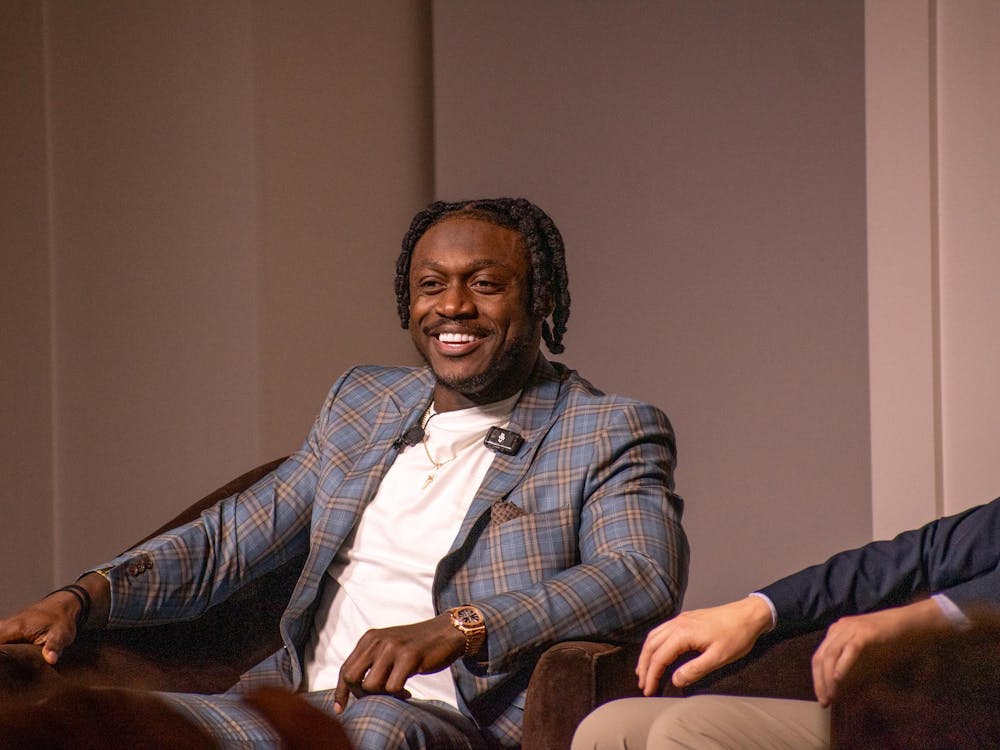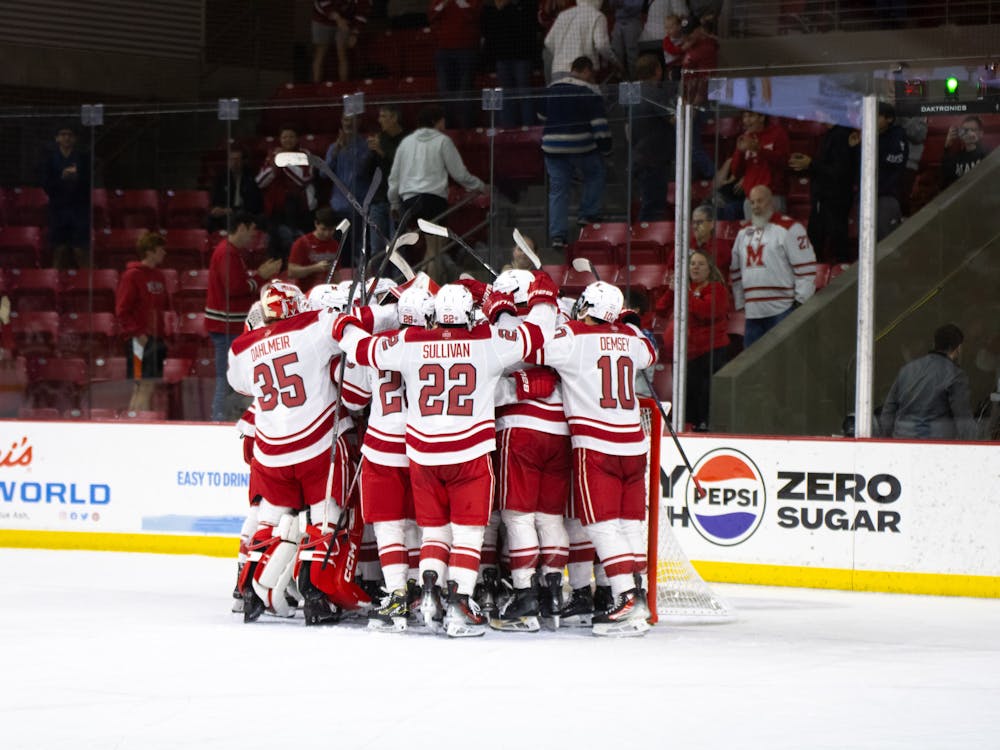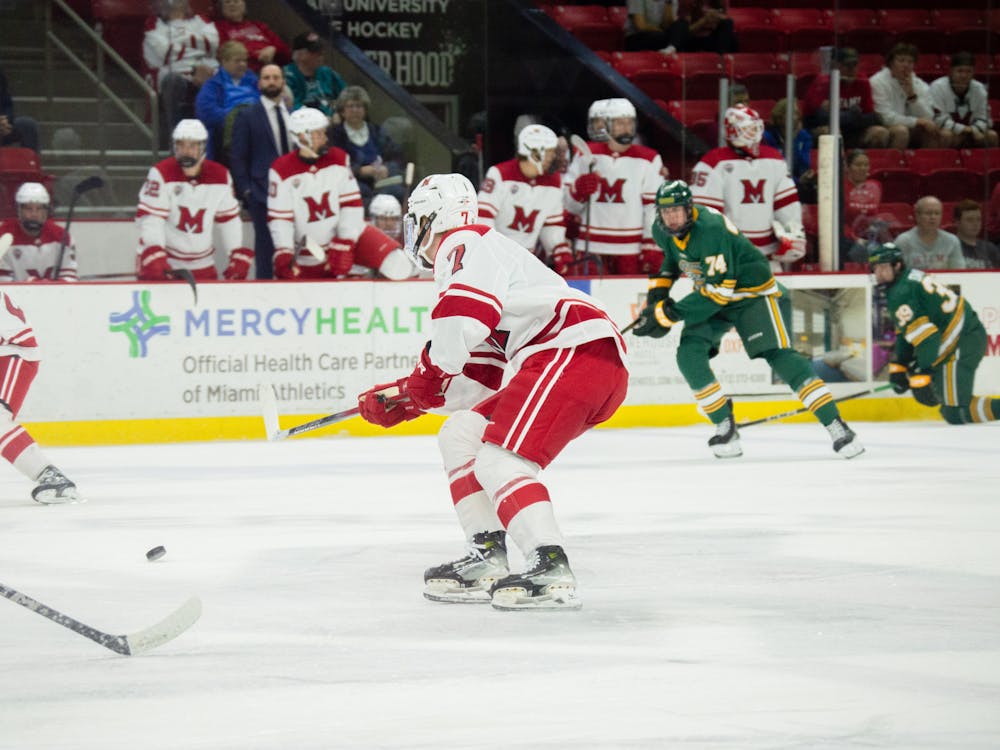The Miami Redhawks hockey program had another rough season in 2022-23. They ended the year last in the National Collegiate Hockey Conference (NCHC), with a record of 8-24-4 and a conference record of 3-18-3.
With eyes ahead to the 2023-24 season, Redhawk hockey head coach Chris Bergeron and his staff are taking a good look at this past season while making an assertive effort to push the trajectory of the program upward.
With looking forward comes reflection, and Bergeron has done plenty of that since the season ended against the University of Denver in the postseason.
To start, the problems for the Redhawks stem from their defense. They gave up 23 more goals than the next-lowest team in the conference, which is going to be a point of emphasis moving forward.
“We were hoping to solidify our overall team defense, whether it be 5-on-5 or 5-on-4, and we weren’t able to do that,” Bergeron said. “That’s something we’re going to have to address this summer.”
Bergeron also addressed the lack of consistency from the team in 2022-23, as they were unable to string together more than two wins in succession.
“We weren’t able to put together any type of momentum or consistency in league play, which is concerning and something that needs to be addressed,” Bergeron said.
However, there were things that the coaching staff and returning players can build from.
“I liked our month of October. We played a non-conference schedule and had a pretty good record heading into league games, but unfortunately, we weren’t able to piece together a bunch of good games in a row with league play,” Bergeron said
Bergeron also touched on the Redhawks' young roster; while they might have had a subpar season, there were plenty of young players on the roster who gained valuable experience over the course of 36 total games played.
“I like the fact that we had a bunch of young players that played a bunch of hockey last year. I’d say that’s a positive. A lot of the time, we had nine freshmen in the lineup, and that’s not an excuse; it’s the reality.”
With 18 returning players, including last year’s captain, Jack Clement, and goaltender Logan Neaton, the team and coaching staff are looking to gain as much momentum as possible through a culture of players and staff that want to right the ship in 2023-24.
Enjoy what you're reading?
Signup for our newsletter
“Everyone that’s returning next year is vital,” Bergeron said. “I believe they all want to be here for all the right reasons; I believe they all want to make an impact individually. They want to leave Miami hockey better than they found it, and we need all of them.”
The program has had to deal with some personnel losses through the transfer portal, most notably through the departure of forward Red Savage and goaltender Ludvig Persson, and a program in Miami’s position has to learn to work around it.
“It’s difficult. We put a lot of time and energy into these boys, and they put a lot of time and energy into our program,” Bergeron said. “You’re almost going year to year when it used to be you make a three or four-year impact at a program; maybe now it’s only one year, maybe two.”
The loss of players requires the recruitment of new ones, and even though the program has had its deep-rooted struggles, there are still reasons for new players to come play in Oxford, Ohio.
“Miami University, in general, is the biggest positive we have,” Bergeron said. “Unfortunately, the winning and losing is something that people are focused on, which I understand. That focus is my focus every day, but this is still a special place, and the incoming kids know that.”
The losses of Savage and Persson (as well as Joe Cassetti, Chase Pletzke, Alex Murray, and others that have entered the portal) are hard to navigate, but the goal is to find players that can help make an equal or bigger impact in the lineup.
“This is a special institution,” Bergeron said. “This is a hockey program that has a history of success, and what we’re looking for is young guys that want to be involved in getting this program back to that level. We’re going to continue to look for that until we find it, and we think we’re a lot closer today than we were yesterday in terms of time.”




